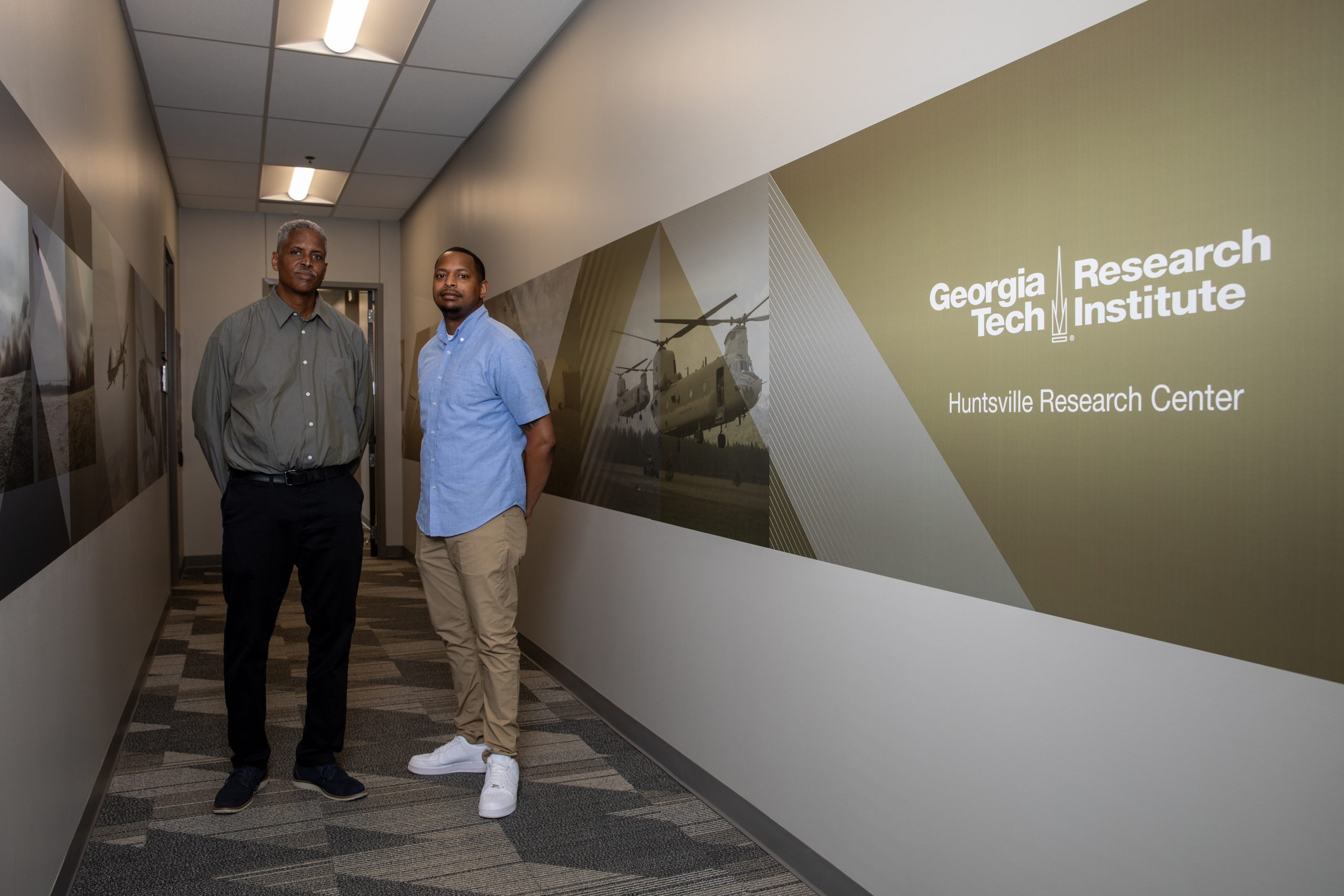 Subscribe
Subscribe- Login
-
/
Sign Up
|
Getting your Trinity Audio player ready...
|
The Georgia Tech Research Institute (GTRI) recently partnered with Alabama A&M University for its inaugural Defense-University Affiliated Research Traineeship (DART) Program. (Photo Credit: Sean McNeil)
The program’s goal is to support underrepresented researchers in science, technology, engineering, and math (STEM) and to conduct research for the U.S. Army.
Dr. Kenneth Sartor, an assistant math professor, and Malcolm Echols, a senior electrical engineering major at Alabama A&M University, participated in the DART Program at GTRI’s research facility in Huntsville, Alabama.
The DART program aims to increase awareness, knowledge, access, and opportunities in research and development (R&D) contracting for the U.S. Department of Defense by leveraging the pipeline of underrepresented researchers in STEM.
Sartor and Echols worked on a project utilizing machine learning to improve predictive maintenance for the Army’s helicopters under the guidance of GTRI Principal Research Engineer, Eric Grigorian.
After the summer contract, AAMU student Malcolm Echols was hired to continue working for GTRI.
The DART program was administered by AAMU Research Innovation Science Engineering (RISE), and GTRI intends to expand it to other Historically Black Colleges and Universities (HBCUs) across the country.
Machine learning is an AI that can quickly learn from data, identify patterns, and make recommendations with minimal human intervention. AAMU and GTRI collaborated to integrate advanced machine learning algorithms into AvMC’s helicopter maintenance records data repository, which improved its predictive maintenance models.
According to a recent study, historically Black colleges and universities (HBCUs) and minority-serving institutions (MSIs) received only 1.3% of the total DoD research funding awarded to all higher education institutions.
The study identified three crucial areas for HBCUs and MSIs to build their capacity and compete for DoD funding.
In related news, Alabama A&M has been awarded a new grant of $1.2 million by the National Science Foundation. This grant will enable the university to make significant progress in the fields of ceramics and nanostructures.
This breakthrough could lead to specialized applications with far-reaching implications that can impact various industries, including electronics and energy.
For its inaugural DART Program, GTRI recently partnered with Alabama A&M University to conduct research for the U.S. Army. Visit our website to learn more about DART’s mission to support underrepresented researchers in STEM. pic.twitter.com/PkzRY5zDnC
— GTRI (@GTRI) September 29, 2023
A new $1.2 million NSF Grant is positioning #AAMU to make significant strides in the field of ceramics and nanostructures, paving the way for specialized applications with far-reaching implications that can impact industries ranging from electronics to energy.
This and more at… pic.twitter.com/Jb0mYTSKv8
— Alabama A&M University (@aamuedu) September 25, 2023


